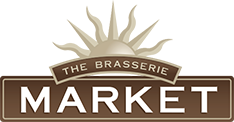
Did you know that bees are the only insect in the world that make food people can eat?
One bee will only make 1/12 of a teaspoon of honey in its entire life, so remember that next time you drizzle honey on your yoghurt in the morning. It takes 1,100 bees to make 1 kilogram of honey and they have to visit approximately four million flowers to do so.
Since producing our own Brasserie Honey we’ve noticed a significant increase in the production of fruits and vegetables in our edible gardens around Cricket Square. Many plants rely on insects like bees in order to be pollinated. In gratitude, the plant provides nectar to the bee to say thank you.
Honey helps to keep your memory sharp. It contains ‘pinocembrin’, an antioxidant that improves brain function.
This golden liquid also contains flavonoids and phenolic compounds that help reduce the risk of some cancers and heart disease. Research shows that honey treatment may help disorders such as ulcers and bacterial gastroenteritis. All honey is antibacterial, because the bees add an enzyme that makes hydrogen peroxide. This contributes to the incredibly long shelf-life of honey.
Honey’s anti-bacterial qualities are particularly useful for acne treatment and prevention, while the antioxidants may assist slowing down the signs of ageing. It’s also moisturising and soothing for the skin.
Regular consumption of honey can give your immune system a boost because of its anti-bacterial and antioxidant properties. It can also help cleanse and build up your digestive system, which is essential for optimal health.
Ancient Olympic athletes ate honey and dried figs to enhance their performance. This has now been verified with modern studies showing that it is superior in maintaining glycogen levels and improving recovery time than other sweeteners.
Honey helps with coughs by coating the throat and soothing the nerve endings that protect the throat. Some doctors believe that two tablespoons of honey are just as effective as cough suppressants. Because of honey’s anti-inflammatory properties, it is able to help reduce allergy symptoms.
After a good night’s sleep? The sweetness of honey causes your insulin levels to rise, which in turn releases the neurotransmitter serotonin. Thee body converts this serotonin to melatonin – a chemical that helps your body sleep.
Honey is considered the oldest known wound dressing due to its natural antibiotic nature. However when considering using honey for the treatment of wounds and burns, it’s extremely important to understand that there’s a major difference between raw honey and highly processed honey. The latter is more akin to high fructose corn syrup, whereas raw honey can effectively eradicate more than 250 clinical strains of bacteria.
Honey is one of the oldest and best sweeteners on earth and we all know that we could use less processed sugar! Its exact combination of fructose and glucose actually helps the body regulate blood sugar levels.
Ever feel like lying your head down on your desk at work after lunch because you’re feeling completely zapped? Honey’s high carbohydrate load makes it a great source of unprocessed sugar energy. Although honey is super good for you, use it in moderation due to its level of fructose.
So next time you see a bee, not only appreciate that its wings are beating 190 times a second (11,400 times a minute!) but also the effort by this bee to produce a superfood that provides so many health benefits.
Did you know that our skilled beekeeper Efrain makes beeswax candles? Take a look at the magnificent candles below that we sold at our farmers’ market in February.


